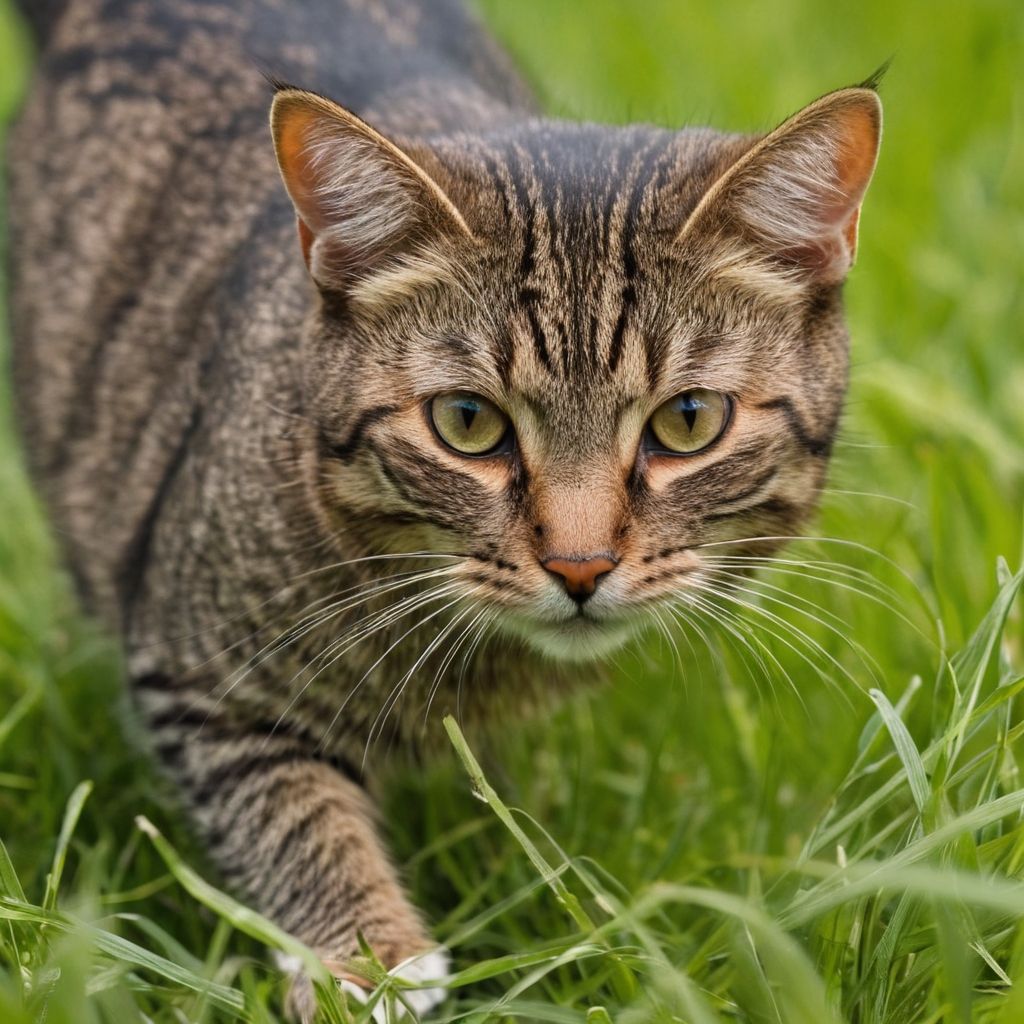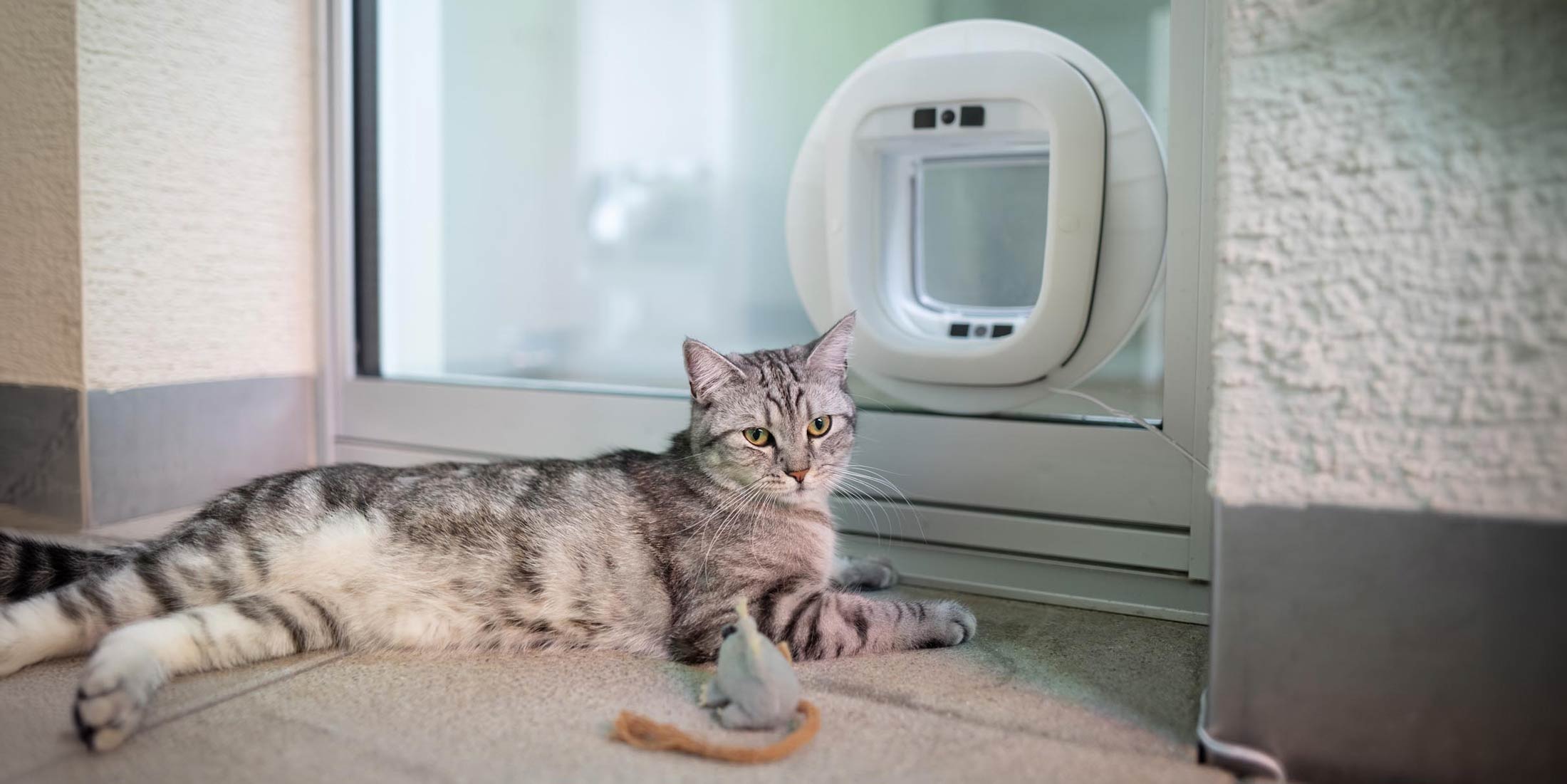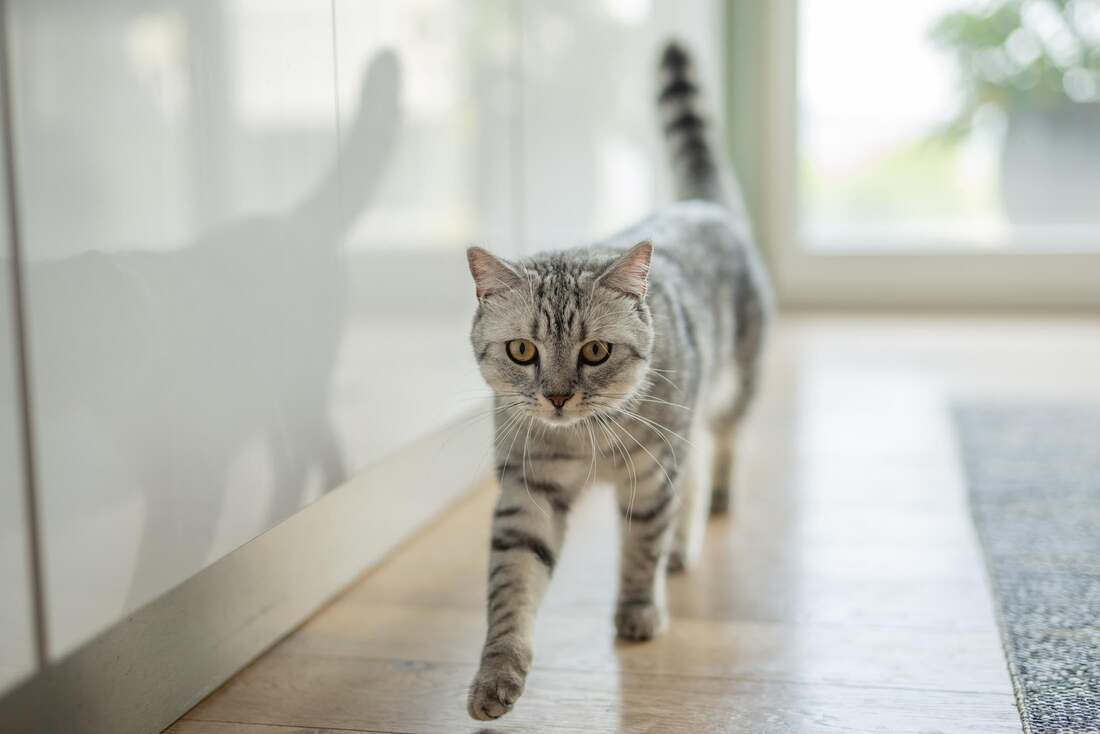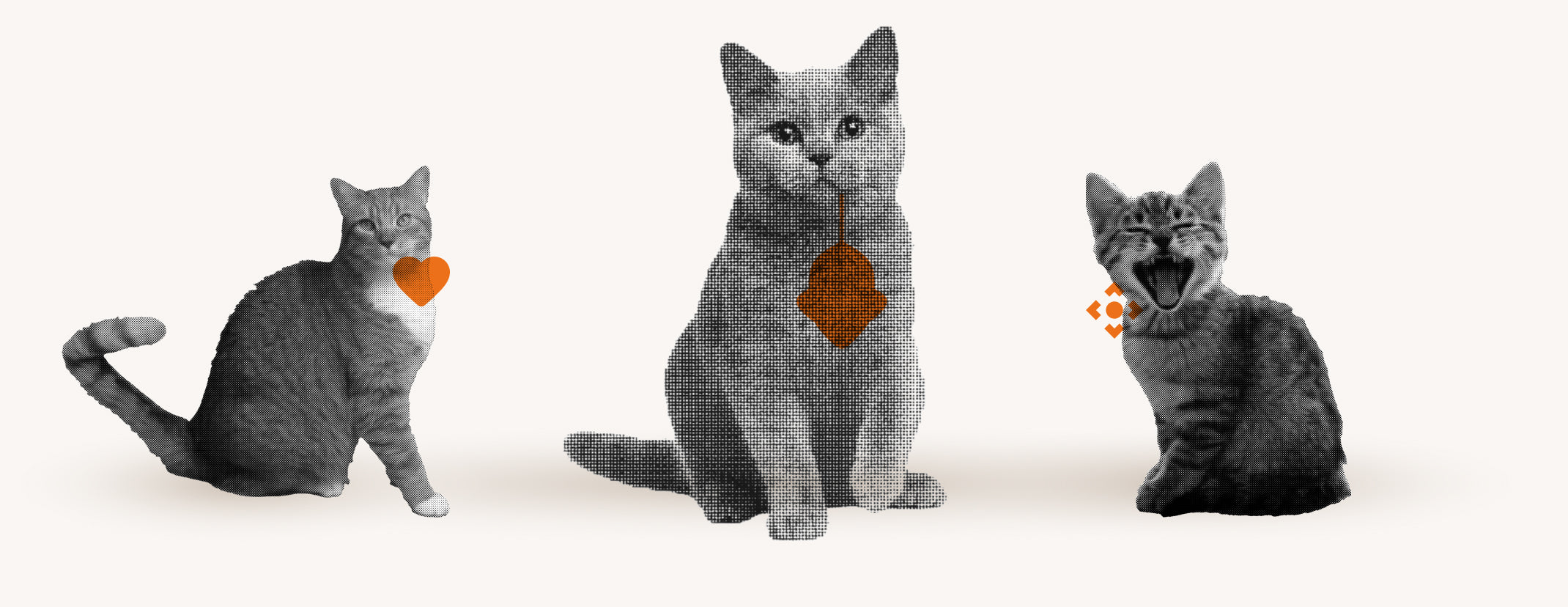Is it really safe for your cat to eat mice?
Many cat owners are concerned because mice can transmit diseases and parasites.
Yes, cats can eat mice, but it is important to deworm them regularly to avoid health problems.
In this article, you will learn all about the reasons why cats eat mice, the risks involved and how you can protect your cat by taking appropriate measures.
Why cats eat mice and the associated risks

Cats are not only cute pets, but they are also natural hunters. Their instinct drives them to chase and eat mice. This behavior is deeply rooted in their nature, regardless of whether they are hungry or not. Outdoor cats are particularly active in hunting, as they constantly encounter potential prey in the wild. However, eating mice can pose health risks, as mice often carry parasites such as worms that can be passed on to the cat.
The risk of parasites is particularly high in outdoor cats that regularly eat mice and other small rodents. Such parasites can cause serious health problems, including diarrhea, vomiting and even more serious diseases such as lungworms. It is therefore important that cat owners ensure regular deworming and act quickly if signs of illness appear. However, it is difficult to completely eliminate cats' natural hunting behavior.
The hunting instinct of cats

The hunting instinct of cats is a fundamental part of their behavior. Even as kittens, they begin playful hunting activities that prepare them for real hunting. This instinct remains in adult cats, even when they are kept as pets and are fed regularly. Playing with toy mice or watching prey through the window are examples of how domestic cats act out their hunting instinct, even without catching real prey.
How to Stop Cats from Eating Mice

To prevent your cat from eating mice, it is important to keep them mentally and physically occupied. Regularly playing with your cat can help satisfy their hunting instincts in a safe and controlled way. Here are some tips to keep your cat occupied:
- Use toys that stimulate the hunting instinct, such as feather fishing rods or toy mice.
- Provide your cat with climbing and hiding places to encourage natural behavior.
Additionally, controlling access to the outdoors can help minimize the risk of your cat hunting and eating mice. Limit the times your cat is allowed outside, especially during dusk and night when mice are more active. A secure environment such as a fenced yard or a safe balcony allows your cat to observe the surroundings without directly hunting. Feeding high-quality cat food can also help to satisfy the hunting instinct, as your cat is already getting all the nutrients it needs.
Worm infestation in cats: symptoms and detection
Worm infestations in cats can pose a serious threat to their health. The symptoms of worm infestations are often not immediately apparent, especially in cats that otherwise appear healthy. However, there are a few signs that may indicate that your cat may have worms. These include weight loss, a bloated stomach, diarrhea, vomiting, or a dull coat, among others. It is important to pay attention to these symptoms, as they can significantly affect your cat's quality of life.
To determine whether your cat is actually infected with worms, a stool sample can be analyzed by a vet. This test is particularly important because some types of worms can also be transmitted to humans. Early detection and treatment of worm infestations is crucial to protecting the health of your cat and your family. Therefore, pay regular attention to the symptoms mentioned and do not hesitate to see a vet if you notice any changes in your cat's behavior or physical condition.
Different types of worms in cats

Cats can be infected with various types of worms that affect their health. The most common are roundworms, which can infect young cats, especially through their mother's milk. Tapeworms are often transmitted by fleas, which act as an intermediate host. Hookworms and whipworms can also cause serious health problems, including blood loss and diarrhea. It is important to know the specific types of worms to ensure effective treatment.
Deworming methods for cats

Deworming cats is an essential part of health care. There are several methods of deworming cats, including oral medications such as tablets and pastes. These medications are designed to kill the worms in the cat's intestines. It is important that deworming is done at regular intervals to ensure effective protection. Choosing the right dewormer and using the correct dosage is crucial to the success of the treatment.
In addition to oral medications, there are also spot-on preparations that are applied to the cat's skin. This method is particularly popular for cats that are difficult to treat, as it is less stressful. Regardless of the method, it is important to repeat the treatment regularly, as most dewormers do not provide long-term protection. Regular deworming helps prevent the spread of worms and protects your cat's health.
Worming treatments for cats: application and effect
Dewormers are special medications that aim to kill worms and their larvae in the cat's body. These medications are usually available as tablets, pastes or spot-ons. The effect of a dewormer is usually limited to a few days during which the worms are killed. It is important to carry out the dewormer under the supervision of a veterinarian to ensure that it is effective and safe.
While worming treatments are very effective, they do not provide permanent protection against reinfection. Therefore, it is important to perform regular fecal examinations and repeat the worming treatment at the intervals recommended by your vet. This will help prevent reinfestation and protect your cat's long-term health. When using a worming treatment, it is also important to treat all pets in the household at the same time to avoid cross-infection.
Protect your cat with Flappie
Imagine if you could prevent your cat from bringing mice home in the first place. That's exactly what Flappie makes possible. Flappie 's intelligent cat flap is equipped with modern technology that allows you to monitor your cat when it comes in and out. Thanks to a camera and artificial intelligence (AI), Flappie can detect whether your cat is trying to come home with a mouse. In this case, the flap simply stays closed. This tackles the problem at its root: no mice, no risk of worm infestation.
The advantages of this technology are clear:
- Selective access control : Prevents cats from entering the house with prey.
- Prey detection by AI : Detects whether the cat has prey with it.
- Notifications and remote control : You can control the flap using the Flappie app and be notified when your cat tries to enter with prey.
Not only does Flappie prevent unwanted guests like mice from entering your home, it also offers a simple solution for monitoring your cat's behavior. Through the Flappie app, you can gain insight into your cat's activities, watch videos and get statistics on their behavior. This way, you not only keep control of what comes into the house, but also promote a healthy environment for your cat without getting in the way of their natural instincts. Don't think twice, protect your home and your cat's health effectively with Flappie . Visit the website flappie.ch now and find out about the revolutionary cat flap that will improve your life and that of your cat. Here are some additional features that make Flappie so special:
- Easy installation : fits any door or window.
- High security standards : Data protection is a top priority, as no data is passed on to external servers.
- Customer Support : Available 24/7 to answer your questions.
Frequently Asked Questions
How often do you have to deworm a cat that eats mice?
It is important that deworming is carried out at regular intervals to ensure effective protection. It is best to discuss the exact intervals with your veterinarian, as they can vary depending on your cat's individual risk and living circumstances.
Is it dangerous if my cat eats mice?
Yes, eating mice can pose health risks as mice often carry parasites such as worms that can be passed on to the cat. These parasites can cause serious health problems including diarrhea, vomiting and more serious conditions such as lungworms.
How does a cat behave when it has worms?
The symptoms of worms in cats are often not immediately apparent, especially in cats that appear otherwise healthy. However, some signs may indicate that your cat may have worms, including weight loss, a bloated stomach, diarrhea, vomiting, or a dull coat.
Can I deworm my cat myself?
Yes, you can deworm your cat yourself. There are several methods of deworming cats, including oral medications such as tablets and pastes, and spot-on preparations that are applied to the cat's skin. However, it is important that deworming is carried out under the supervision of a veterinarian to ensure that it is effective and safe.





Share:
When are cats most active? Insights into their behavior
How old do Chartreux cats get? A comprehensive guide